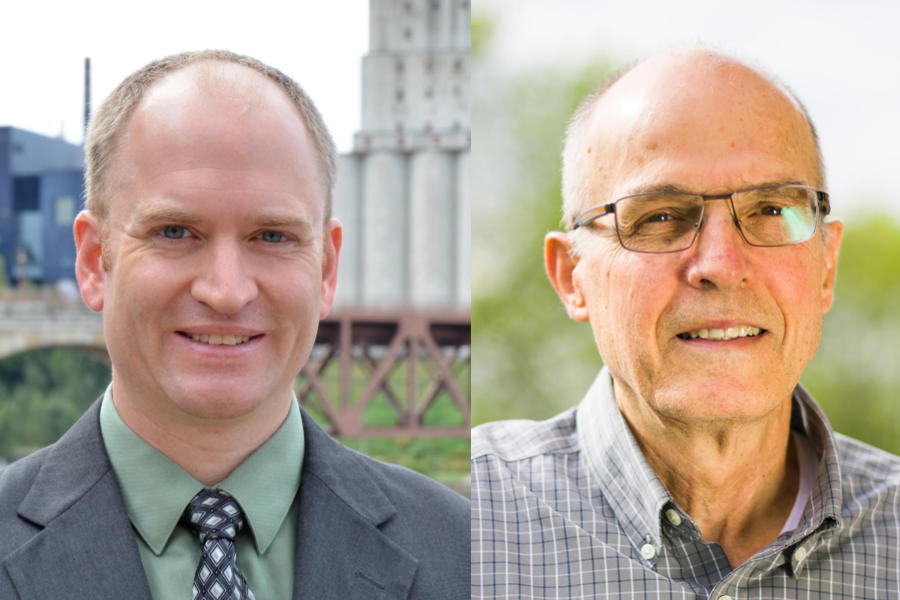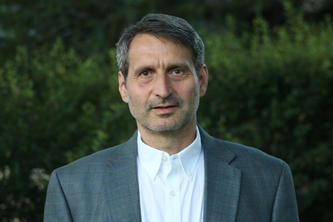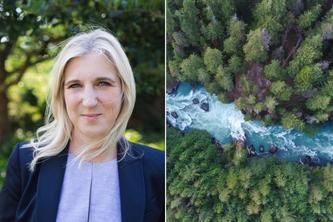
Minnesota is experiencing severe flooding risks this spring, and it’s a trend expected to continue in the future. Extreme weather events brought on by climate change, such as heavy rains and flooding, are becoming more common here and in communities across the globe — and our infrastructure has not been able to keep up.
Andy Erickson and John Gulliver, civil engineering researchers in the University of Minnesota College of Science and Engineering, explore current trends and infrastructure limitations and evaluate a variety of ways in which cities can better manage stormwater runoff from extreme weather events.
Their research finds that extreme and future-predicted events are larger than our stormwater infrastructure was ever designed to handle. In addition, the amount of stormwater we need to store is substantial.
Andy Erickson, Ph.D., PE
“Climate change is a serious threat to our urban stormwater infrastructure. Based on our findings, we recommend cities consider a combination of the following strategies to manage stormwater runoff from extreme and future-predicted storm events:
- Expand stormwater infrastructure to handle larger volumes of water. This could involve building new stormwater ponds, upgrading existing stormwater systems, or both.
- Improve infiltration in existing green spaces. This could involve planting trees, installing rain gardens, and creating other vegetated areas that can absorb rainwater.
- Disconnect impervious surfaces from storm sewers. This could involve installing rain barrels, redirecting downspouts to vegetated areas, and using porous pavement."
John S. Gulliver, Ph.D.
“By taking steps to manage stormwater runoff from extreme and future-predicted storm events, we can reduce the potential for flooding and protect our communities. One of the most promising steps would be to educate people on how the grass in their lawns can influence runoff from extreme events by planting deep rooted grasses that will improve soil permeability.”
Andy Erickson, Ph.D., PE, is a research manager at the University of Minnesota’s St. Anthony Falls Laboratory. Erickson's research focuses on understanding water quality in urban and agricultural watersheds, assessing and maintaining stormwater treatment practices, and developing new stormwater treatment technologies such as the Iron-Enhanced Sand Filter.
John S. Gulliver, Ph.D., is a professor emeritus in the University of Minnesota Department of Civil, Environmental, and Geo- Engineering. Gulliver’s major research interests are mass transport in environmental systems and stormwater pollution prevention. Gulliver conducts his research at the St. Anthony Falls Laboratory (SAFL).
Contact
Andy Erickson, Ph.D., PE
St. Anthony Falls Laboratory Research Manager
Contact: [email protected]





